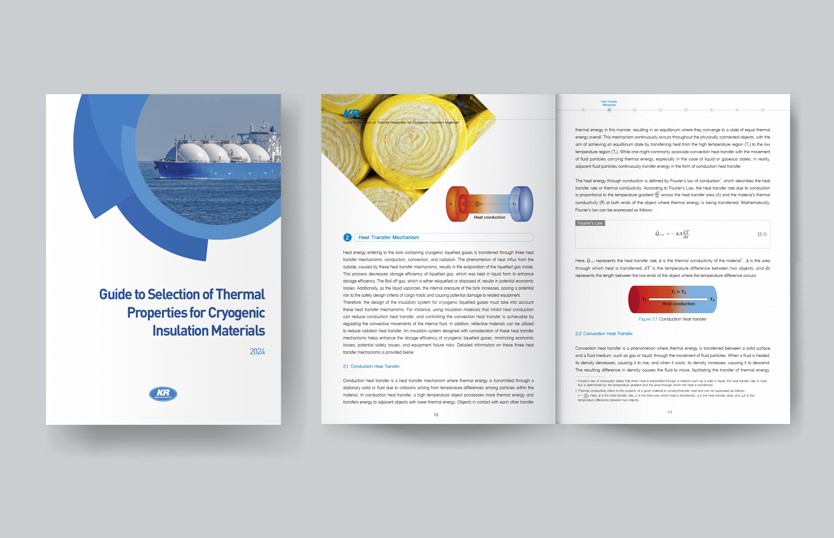KR has published a research report titled "Guide to Selection of Thermal Properties for Cryogenic Insulation Materials" to ensure the safe storage of cryogenic cargoes (LNG or liquefied hydrogen) on ships.
Last year, the International Maritime Organization (IMO) adopted the 2023 IMO Strategy on Reduction of GHG Emissions from Ships with the goal of achieving international maritime carbon neutrality by 2050. The strategy aims to reduce greenhouse gas emissions by at least 20%, striving for 30%, by 2030, by at least 70%, striving for 80%, by 2040, compared to 2008 and achieving net-zero emissions by or around, i.e. close to 2050.
In response to these strengthened environmental regulations, the maritime industry is focusing not only on liquefied natural gas (LNG), which is currently widely used, but also on alternative fuels such as hydrogen and ammonia for long-term use. Particular attention is being paid to insulation system technologies for the safe and efficient transportation and storage of cryogenic fuels.
The representative cryogenic fuels are LNG and liquefied hydrogen. The liquefaction temperature of hydrogen is -253℃, which is approximately 90℃ lower than LNG, requiring advanced insulation technologies. As liquefied hydrogen reduces its volume by about 800 times compared to its gaseous state.
In this regard, KR, in collaboration with the Korea Institute of Machinery and Materials (Yongjin Kim and Taehyun Lee), Pusan National University (Professor Jeong-Hyeon Kim), and Seoul National University of Science and Technology (Professor Changkyoo Park), has published the " Guide to Selection of Thermal Properties for Cryogenic Insulation Materials " to propose essential insulation system technologies for the cryogenic fuels.
The research report explains the insulation systems for LNG at -163℃ and for liquefied hydrogen at -253℃ applied to ships, as well as analyzes environmental factors affecting their designs such as heat transfer mechanisms. Based on this, it is expected to serve as a technical guide in the material selection stage when designing insulation systems for cryogenic environments or developing innovative insulation systems.
KR will continuously provide customers with various technical services through the proactive development of alternative fuel technologies.

